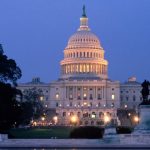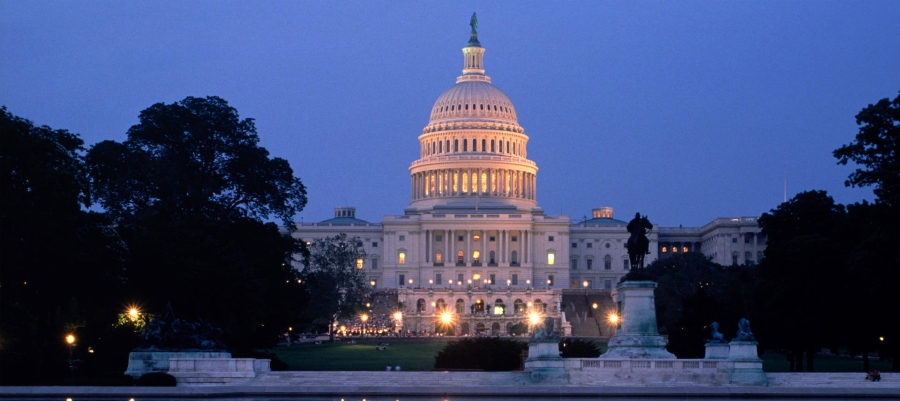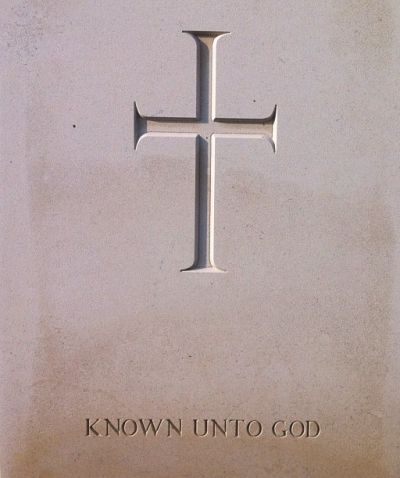
Deprecated: trim(): Passing null to parameter #1 ($string) of type string is deprecated in /home/aoiusa/public_html/wp-content/plugins/sexybookmarks/public.php on line 388
Deprecated: trim(): Passing null to parameter #1 ($string) of type string is deprecated in /home/aoiusa/public_html/wp-content/plugins/sexybookmarks/public.php on line 394
Deprecated: trim(): Passing null to parameter #1 ($string) of type string is deprecated in /home/aoiusa/public_html/wp-content/plugins/sexybookmarks/public.php on line 400
Orthodoxy in the American Public Square
by Fr. Alexander F. C. Webster
The prevailing political and cultural elites in America are succeeding, steadily and surely, in plunging our society into a post-Christian vortex that bears a striking resemblance in many ways to the formative centuries of the ancient Church. Faithful early Christians had to endure an inhospitable culture and a decadent ethos, as well as a hostile state.
America is arguably at the mercy of militant secular progressives hell-bent on subverting the cherished moral virtues of life, family, chastity, work, responsibility, and piety. Reaping an unprecedented harvest of more than 55 million legally aborted babies since 1973, our society is drowning in a sea of idolatrous self-worship, pursuing its own modern version of “bread and circuses” through increasingly violent and vulgar forms of entertainment and self-expression, a permanent welfare state from cradle to grave, unrestricted sex, artificially constructed sexual identities, and a push for publicly sanctioned “marriages” between persons of the same sex—a contra naturam abomination that even ancient Rome at its worst moments never imagined.
Until the emergence of the homosexualist juggernaut, one might have thought that Christians could engage a secular, pluralistic society with neither triumphalism nor significant religious compromise by revisiting the apologists of the ancient Church and reviving their cautious, nuanced, but still faithful evangelistic witness.
Unlike our pre-Constantinian co-religionists, we have vivid memories of centuries of Christendom and of an America infused and guided by a Judeo-Christian morality, now foolishly squandered on the altar of the goddesses of pseudo-tolerance, diversity, and equality. The pain of loss is exacerbated by the realization that our situation will only get worse, unless God the Holy Trinity does a mighty work and providentially changes our nihilistic trajectory.
Eastern Orthodox Christians are relative newcomers to the American public square, and their voice is seldom heard. A vigorous, prophetic, Orthodox Christian public moral witness might be welcomed for its sheer novelty as a fresh, “new” contribution to the American public square—a voice crying not in the wilderness but rather in the nation’s capital and its other centers of worldly power.
The Civilizing Ethic
Orthodox Christianity has, at least from the first generation of patristic apologists in the second century, such as St. Justin Martyr, St. Athenagoras of Athens, and St. Irenaeus of Lyons, acknowledged an “inborn moral law” common to all of humanity.
Beginning with his Th.D. dissertation at Boston University in 1965 and throughout his career, Fr. Stanley S. Harakas, my mentor in Orthodox moral theology, has described the natural law, as it is more commonly known in the West, as “a sort of common denominator ethic”—to be sure, “a relatively low-level morality,” but still “a first preparatory step in God’s relationship with men,” which even sin did not obliterate. In the patristic tradition, that natural law “is perceived to be rational, independent of positive laws and customs, universal and unchanging” and “not limited to the special revelation acknowledged by Orthodox Christianity, as found in Scripture and in Holy Tradition.” Through the “effort of unaided reason,” men and women may perceive “the order existing in creation which man is bound to view as good and which claims obedience of him.” Thus, natural law is “a very elemental moral law which articulates the absolutely necessary modes of behavior for the maintenance of the human community.”
As an Orthodox theologian, I prefer to label that minimalist ethic a “civilizing ethic,” since it, without advancing a society toward the kingdom of God, at least keeps that society from reverting to the jungle and provides a modicum of order and decency.
Although the church fathers and modern philosophers and theologians alike dispute the precise content of that sine qua non for human morality, the church fathers tended to identify the content of the natural law with the Decalogue in the Old Testament. Possibly with the exclusion of the first four commandments for their explicitly theological content, the remainder of the Decalogue could still furnish a very basic platform for public debate in American society on ethical issues such as abortion and infanticide.
For example, the prohibition in the sixth commandment against “killing”—which is better translated from Hebrew as “murder” (Ex. 20:13)—may form the core of the pro-life case against the taking of innocent human life. Prescinding from the biblical source itself, we might argue that virtually every human society in history has prohibited murder on the basis of a natural, rational insight. Of course, that only raises the question of whether the preborn child is “a human life,” much less an “innocent” one. But then we have the modern biological science of genetics to adduce in support of the incontrovertible datum of the naturally uninterrupted continuity of essential human life from the moment of chromosomal realignment in the fertilized human ovum.
In any case, the example of abortion illustrates the appeal to reason and science (instead of revelation) that might have, in a less polarized era, reestablished a traditional moral climate in America. But try to conduct such a reasonable discussion with an ardent supporter of abortion “rights” and see how quickly a “pro-choice” ideologue resorts to name-calling (“sexist,” “misogynist,” “war on women”), bullying, and efforts to suppress or even silence his or her interlocutor. Similarly, any serious attempt to dialogue with the engineers of the homosexualist juggernaut is certain to be met with howls of denunciation of us as “bigoted,” “hate-filled,” and “homophobic.” We are also witnessing the initial stage of a vengeful and vicious repression, oppression, and elimination from public life of anyone who dissents from the new sexual orthodoxy. The appeal of Isaiah 1:18 no longer seems operative in America: “Come now, let us reason together, says the Lord.”
Transfigurative Morality
Orthodox Christians, much like our traditional Roman Catholic and Evangelical Protestant compatriots, affirm a universal and irrevocable duty to maximize our efforts toward the evangelization of America, both spiritually and morally. That evangelistic imperative is also a moral one—namely, for us vigorously and without apology to present Christianity in its revealed fullness, firmly rooted in the “transfigurative morality” of the New Testament and in the one, holy, catholic, and apostolic Church.
This “higher,” universally normative moral law is, as Fr. Stanley Harakas frames it, revealed in full by the Word-made-flesh, and it speaks to mankind’s “greatest potential and its total fulfillment.” Only that kind of moral perspective enables all human beings and their communities to transcend, or “transfigure,” their own limitations and self-interest and to advance toward spiritual perfection, a process that the Orthodox call theosis—becoming more and more like God (2 Peter 1:4).
Transfiguration requires as its starting point faith in Jesus Christ as Lord and Savior, the incarnate divine Logos and Son of God, which, alas, our government and our society, “officially” at least, currently lack. Those who do not share the particular faith that undergirds and finds dynamic expression in the “transfigurative morality” of the gospel might never adopt, as their own, the formal moral norms and virtues derived from that revelation-based faith. But possibly unhappy results ought not to deter us from a persistent public moral witness.
If Orthodox and other Christians model their faith and the higher, transfigurative morality in their communities and proclaim it at every opportunity in the public square, there is no telling what kind of metamorphosis might occur in American society. In the present crisis in America, all traditional Christians ought to embrace, not eschew, a muscular prophetic moral and spiritual witness, such as that of St. John the Baptist, who spoke truth to power and denounced the religious and moral abominations of Herodias, wife of King Herod Antipas of Judea.
Bishops with Muscle
Orthodox bishops in America have, of late, assumed the mantle of prophet with encouraging frequency. For example, the “Statement on the Moral Crisis of the Nation” by the nine representative bishops of the Standing Conference of Canonical Orthodox Bishops in the Americas (SCOBA) on August 13, 2003—reaffirmed emphatically on May 16, 2012, by their successor organization, the Assembly of Canonical Orthodox Bishops of North and Central America (AOB for short)—speaks boldly to the wider American society on the moral issues surrounding marriage. The bishops “pray fervently that the traditional form of marriage, as an enduring and committed union only between a man and a woman, will be honored.”
The “moral crisis” they have in mind has arisen from attempts by homosexuals and other advocates of that lifestyle to achieve legal recognition of their faux-marital “unions.” The Orthodox bishops know, of course, that their own influence on public officials, including legislators and judges, may be nil. Nonetheless, they are obliged to respond to a higher summons to reassert without compromise a universal social principle firmly grounded in the history of Western civilization, as well as the revealed tradition of Orthodox Christianity extending all the way back to the New Testament era. In one short, pungent statement, America’s Orthodox bishops attempt at once to transfigure and to civilize our society in at least one of its most crucial institutions now under siege—marriage.
SCOBA’s prophetic voice on the contentious homosexual “marriage” issue has been echoed in the following:
- “On Same-Sex Unions,” a 2004 “epistle” of Archbishop Kyrill of San Francisco and Western America (Russian Orthodox Church Outside Russia, or ROCOR) and the rest of his diocesan clergy.
- Strong, compassionate statements in 2011 by individual bishops of the Orthodox Church in America (OCA): Metropolitan Jonah, then senior hierarch and archbishop of Washington; Bishop Michael of New York and New Jersey; and former Bishop Matthias of Chicago and the Midwest.
- A similarly strong, compassionate statement on March 29, 2013, by ROCOR’s Diocese of Chicago and Mid-America under Archbishop Alypy and Bishop Peter, two days after the U.S. Supreme Court heard the second of two cases concerning the issue.
- A surprisingly political—in the best sense of politeia, or the right ordering of society—remark by Metropolitan Methodios of the Greek Orthodox Metropolis of Boston in his address to the annual diocesan Clergy-Laity Conference on October 5, 2013: “Lifestyles previously kept in the closet—where they belong—are now championed as reputable and worthy of emulation. I am sad to note that a legislator here in New England (who claims to be an Orthodox Christian and who champions Greek political causes) not only voted to change the law in his state to redefine homosexual unions as marriages—he asked for and received special permission to preside at a civil ceremony uniting a homosexual couple!”
Unfortunately, seven days after the U.S. Supreme Court’s decision regarding the Defense of Marriage Act in United States v. Windsor (handed down on July 26, 2013), the OCA Synod of Bishops released an “Affirmation on the Mystery of Marriage,” which urges the faithful merely to pray, continue to instill our moral and liturgical traditions among the faithful, not fear anything, and hunker down; there was no overture to the public or the wider society, much less a coherent advocacy of a proper public policy concerning marriage. Moreover, the silence of the AOB on the Windsor ruling was at once perplexing and disappointing.
On the particular political-ethical issue of abortion, the early church fathers, like their post-Constantine descendants, were unanimous in their condemnation of the practice in the Roman Empire. Remarkably, abortion is one of only several moral issues on which not one dissenting opinion was ever expressed by the church fathers. Thus, it comes at once as a relief and an inspiration that most of the Orthodox bishops in the United States have repeatedly proclaimed a staunch, uncompromising pro-life moral position to the faithful and to the American public, despite the deaf ears of some ostensibly Orthodox public officials and perhaps, if a recent Pew poll is accurate, the majority of the Orthodox faithful themselves.
For example, on the unhappy occasion of the fortieth anniversary of the U.S. Supreme Court’s infamous Roe v. Wade decision in January 1973, which instantly legalized the abomination of abortion in all 50 states, the 55 AOB bishops sounded a clarion call to duty:
The Holy Orthodox Christian Faith is unabashedly pro-life. The Lord Jesus Christ was recognized and worshipped in His mother’s womb while yet unborn by the Holy Forerunner who was also still in his mother’s womb (Luke 1:44); St. Basil the Great (4th Century), one of the universal teachers of the faith, dared to call murderers those who terminate the life of the fetus. The Church has consistently held that children developing in the womb should be afforded every protection given to those outside the womb. There is no moral, religious or scientific rationale which can justify making a distinction between the humanity of the newly-conceived and that of the newly-born. Abortion on demand not only ends the life of a child, but also injures the mother of that child, often resulting in spiritual, psychological and physical harm. On the occasion of this sorrowful anniversary . . . we pray for an end to the violence of abortion. . . . Let us offer to Almighty God our repentance for the evil of abortion on demand and extend our hearts and hands to embrace life.
Another noble example of transfigurative moral witness was an amicus curiae brief signed by 47 Orthodox bishops, priests (including the present author), deacons, professors, and other prominent lay leaders and submitted on February 21, 1989, to the U.S. Supreme Court in the case titled Webster v. Reproductive Health Services (Missouri). That veritable “Who’s Who” in American Orthodoxy also encompassed four of the bishops of the Russian Orthodox Church Outside Russia in an act of pan-Orthodox unity—extraordinary at that time—for a pressing common moral cause.
Some Orthodox bishops, as well as numerous clergy and faithful laity, have also let their feet do the talking by joining the annual March for Life in Washington, D.C., held each January since Roe v. Wade. The forty-plus years that have elapsed since Roe ought to remind us, however, that justice, even on the divine scale, is more often delayed than immediate.
Transfiguration or Martyrdom?
Christos Yannaras, Greek Orthodox emeritus professor of philosophy at the Panteios Institute in Athens, has waxed optimistic about the dynamic quality of modeling the fullness of Orthodox faith in society. “As people live the sacrificial ethos of the Eucharist,” he argued in 1984 in The Freedom of Morality, “it suffuses economics, politics, professional life, the family, and the structures of public life in a mystical way—it acts with a dynamic indeterminacy beyond the reach of objective predetermination. And it transfigures them—it changes their existential presuppositions, and does not simply ‘improve’ them.” Perchance to dream!
And yet, in his 2000 book, Emperors and Elections: Reconciling the Orthodox Tradition with Modern Politics, Nikolas K. Gvosdev, an Orthodox scholar at the U.S. Naval War College, was probably right to be pessimistic about articulating in the public square what I have termed the transfigurative morality:
Barring any major social, political, or environmental upheavals, there is no possibility of any sort of restoration of a pre-industrial, pre-modern society anywhere in the Orthodox world that would permit the recreation of social and political institutions as envisioned in the writings of the Church Fathers and that are assumed to be in place by many of the canons of the Church. Just as Orthodox Christianity had to adapt to the changes wrought by the conversion of Constantine in the fourth century, so too Orthodoxy today must again seek adaptations in its outward social and political forms while remaining faithful to its spiritual Tradition.
To be sure, what I envision in the present crisis in America is not motivated by nostalgia for some “golden age” in Byzantium or “Holy Rus.” The Eastern Orthodox can neither recapture past glories of Orthodox social and cultural pre-eminence nor simply transplant ancient or medieval models, however alluring, to these culturally confused and morally misty shores in the twenty-first century. But the Orthodox community in America may—and ought to—endeavor to become agents of positive transformation with a view toward moving this culture and society closer to the same ideals of the transfigurative morality to which the Byzantines, pre-Soviet Russians, and many other Orthodox cultures aspired, notwithstanding their failure to incarnate those ideals.
If our worst nightmares come to pass and Orthodox Christians find themselves, together with other God-fearing Americans, actually persecuted by the nouveaux secular Caesars in authority, then may God the Holy Trinity grant us the grace and the fortitude to stand our ground in our public testimony and to join the countless Christian confessors and martyrs under the original pagan Caesars, proclaiming, “Over our dead bodies—but under our living souls!”
May we also take comfort in the hope that history will record that millions of Americans in the “greatest generation” on these shores remained, in their public testimony, faithful at once to the gospel of Jesus Christ and the promise of America.

Archpriest Alexander F. C. Webster, Ph.D., is a retired U.S. Army chaplain (Colonel) and parish priest of St. Herman of Alaska Orthodox Church (Russian Orthodox Church Outside Russia), Stafford, Virginia.
Originally published in Touchstone: A Journal of Mere Christianity, Vol. 28, No. 3 (May/June 2015), pp. 24-27.]

